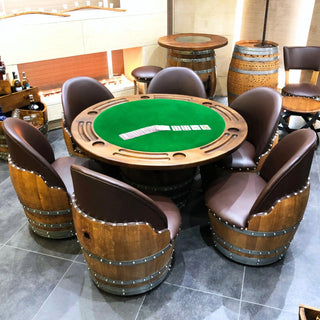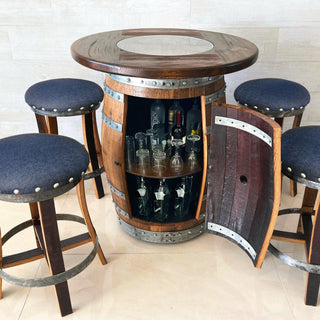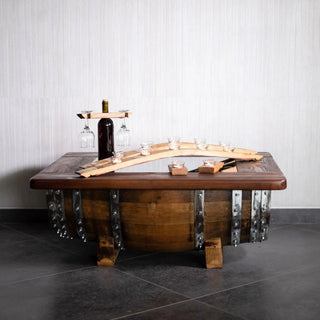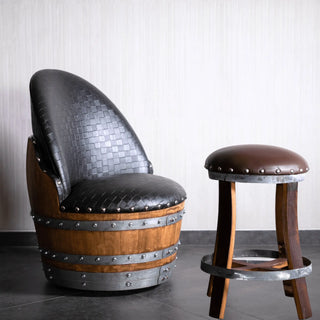
One of the most common packaging decisions for wine is whether or not to use a cork or a twist top. Both corked and screw-top bottles of wine have their merits and drawbacks, but the issue remains as to which is superior. This essay will answer that question and weigh the advantages and disadvantages of various wine bottle formats.
Bottles with corks
Wines have been stored in corked bottles for centuries, and this practice continues today. The airtight seal provided by the cork aids in preserving the wine and prolongs its shelf life. As oxidation can diminish the wine's flavor and aroma, this helps to keep it preserved. In addition, corked bottles have become a mark of history and quality, particularly for more expensive wines.
The corks on the bottles enable for a more measured and controlled oxidation process, which is one of the bottle's main selling points. This contributes to the wine's aging process, which can give the wine more depth and complexity over time. The cork's ability to keep the wine at a consistent temperature is another way it protects the wine's flavor and aroma throughout storage.
To be fair, there are drawbacks to corked bottles as well. Cork taint, caused by the presence of trichloroanisole (TCA), is a major cause for alarm when it comes to corked bottles. Wine tainted with TCA has a musty, moldy, or wet scent and loses its flavor and aroma. Because cork is a nonrenewable resource, corked bottles can be more expensive and less eco-friendly than alternative wine packaging options.
Twist-Topped Bottles
Wines packaged in bottles with twist-off caps have gained in popularity in recent years. The screw-on cap on twist-top bottles creates a secure seal and allows for simple opening and closing. Since they don't absorb the flavor of cork and are better for the environment, they're generally preferred over corked bottles.
When it comes to preventing air from getting into the bottle and oxidizing the wine, twist top bottles offer a more constant and trustworthy seal than cork or screw top bottles. Due to the absence of cork, which can absorb TCA contamination, they are also more resistant to cork taint. Since there is no need to utilize cork, bottles with twist-off caps are more eco-friendly and may be purchased for less money.
However, there are a few issues with twist-off caps for bottles. The lack of a slow and steady oxidation process in twist top bottles is a major cause for concern when it comes to the wine's flavor and aroma. Unfortunately, unlike conventional wine bottles, which use a cork to keep the contents at a consistent temperature, twist-top bottles do not have this feature.
In conclusion, there are benefits and drawbacks to both corked and twist top bottles, and the best option will ultimately rely on individual taste and the wine's needs. Corked bottles are more expensive and susceptible to cork taint, but they are also considered as more traditional and high-quality since they allow for a long and gradual oxidation process. The convenience, practicality, and reduced environmental impact of twist-top bottles, as well as the reduced risk of cork taint, are all positives, but they may have an effect on the wine's flavor and aroma.
Bottles with corks
Wines have been stored in corked bottles for centuries, and this practice continues today. The airtight seal provided by the cork aids in preserving the wine and prolongs its shelf life. As oxidation can diminish the wine's flavor and aroma, this helps to keep it preserved. In addition, corked bottles have become a mark of history and quality, particularly for more expensive wines.
The corks on the bottles enable for a more measured and controlled oxidation process, which is one of the bottle's main selling points. This contributes to the wine's aging process, which can give the wine more depth and complexity over time. The cork's ability to keep the wine at a consistent temperature is another way it protects the wine's flavor and aroma throughout storage.
To be fair, there are drawbacks to corked bottles as well. Cork taint, caused by the presence of trichloroanisole (TCA), is a major cause for alarm when it comes to corked bottles. Wine tainted with TCA has a musty, moldy, or wet scent and loses its flavor and aroma. Because cork is a nonrenewable resource, corked bottles can be more expensive and less eco-friendly than alternative wine packaging options.
Twist-Topped Bottles
Wines packaged in bottles with twist-off caps have gained in popularity in recent years. The screw-on cap on twist-top bottles creates a secure seal and allows for simple opening and closing. Since they don't absorb the flavor of cork and are better for the environment, they're generally preferred over corked bottles.
When it comes to preventing air from getting into the bottle and oxidizing the wine, twist top bottles offer a more constant and trustworthy seal than cork or screw top bottles. Due to the absence of cork, which can absorb TCA contamination, they are also more resistant to cork taint. Since there is no need to utilize cork, bottles with twist-off caps are more eco-friendly and may be purchased for less money.
However, there are a few issues with twist-off caps for bottles. The lack of a slow and steady oxidation process in twist top bottles is a major cause for concern when it comes to the wine's flavor and aroma. Unfortunately, unlike conventional wine bottles, which use a cork to keep the contents at a consistent temperature, twist-top bottles do not have this feature.
In conclusion, there are benefits and drawbacks to both corked and twist top bottles, and the best option will ultimately rely on individual taste and the wine's needs. Corked bottles are more expensive and susceptible to cork taint, but they are also considered as more traditional and high-quality since they allow for a long and gradual oxidation process. The convenience, practicality, and reduced environmental impact of twist-top bottles, as well as the reduced risk of cork taint, are all positives, but they may have an effect on the wine's flavor and aroma.
Interested in shopping for wine barrel furniture? You can browse our full collection of items ranging from coffee tables to home bar and game sets here!
www.obarrel.com/collections
www.obarrel.com/collections




